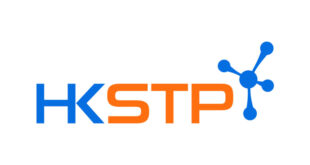HONG KONG SAR
– Media OutReach – 29
September 2021 – Cushman & Wakefield
(NYSE: CWK), a leading global real estate services firm, recently announced
ambitious science-based targets to reduce greenhouse gas (GHG) emissions that
are approved by the Science Based Targets initiative (SBTi). In addition, by signing up to the Business Ambition for 1.5ºC campaign, Cushman & Wakefield pledges to reach net zero emissions
across its entire value chain by 2050.
“With
buildings generating a significant portion of the world’s carbon emissions, we
recognize Cushman & Wakefield plays a vital role in shaping a sustainable
future for the real estate industry and beyond,” said Brett White, Executive
Chairman & CEO of Cushman & Wakefield.
Cushman & Wakefield will immediately
focus efforts on its corporate offices and operations by committing to reduce
absolute scope 1 and 2 market-based GHG emissions 50% by 2030 from a 2019 base
year. Scope 1 includes direct emissions, and scope 2 emissions are from
purchased heat and electricity.
The firm’s
science-based targets will not only reduce absolute GHG emissions from its
corporate operations, but will also include the facilities it manages on behalf
of its clients, some of the world’s largest real estate owners and occupiers.
Leading by example, the firm commits to
partnering with its clients (representing 70% of its scope 3 value chain
emissions) to set their own science-based targets by 2025. Notably,
approximately 99% of Cushman & Wakefield’s emissions come from facilities
it manages on behalf of clients, and the firm is committed to actualizing its
vision of a sustainable future that extends beyond its own corporate footprint.
These targets have been approved by the SBTi.
Additionally, by 2050, the firm pledges to
achieve net zero emissions across its entire value chain, encompassing all
direct and indirect business elements that contribute to GHG emissions (scopes
1, 2 and 3). This target was pledged through the Race to Zero campaign and the
SBTi’s Business Ambition for 1.5°C pathway—initiatives using climate science
frameworks to reach net zero in a global effort to avoid the most catastrophic
impacts of climate change.
“As a leader
in the commercial real estate industry, we understand environmental action
requires bold commitments aligned with climate science,” said John
Forrester, President of Cushman & Wakefield. “These commitments further
our ongoing efforts to reduce our impact and our clients’ impact on the
environment as well as mitigate the impacts of climate change. We have an
opportunity and responsibility to continually evaluate our organization and
hold ourselves accountable for the intended outcomes. We realize our work goes
beyond the present moment and will impact generations to come.”
“We congratulate Cushman & Wakefield
on setting science-based targets consistent with limiting warming to 1.5°C, the
most ambitious goal of the Paris Agreement,” said Alberto Carrillo
Pineda, Managing Director, Science Based Targets at CDP, one of the SBTi
partners. “By setting ambitious science-based targets grounded in
climate science, Cushman & Wakefield is taking action to prevent the most
damaging effects of climate change.”
These recently announced science-based
targets build upon Cushman & Wakefield’s longstanding commitment to
reducing its own environmental impact across the property life cycle, in
addition to suppliers’ and clients’ impact. In 2020, the firm achieved a 1.1% absolute
reduction in scope 1 and 2 (market-based) GHG emissions; a 2.5% absolute
reduction in scope 3 GHG emissions; and a 14% reduction in total scope 1 and 2
GHG emissions per million square feet (MSF) of office space. Cushman &
Wakefield also worked with clients to provide energy and sustainability
services to over 370 MSF of space in the U.S. in 2020. More information is
available in the firm’s 2020 Corporate Social Responsibility Report.
Learn more about Cushman & Wakefield’s
science-based targets and net zero commitment.
Source link
 Odisha Samachar Odisha Breaking News , Odisha Current News , Odisha News
Odisha Samachar Odisha Breaking News , Odisha Current News , Odisha News



